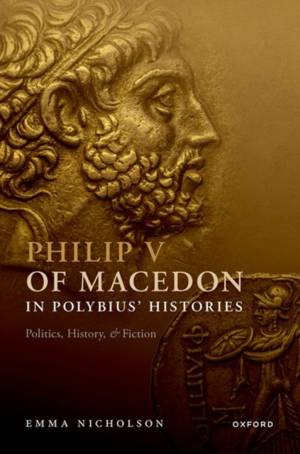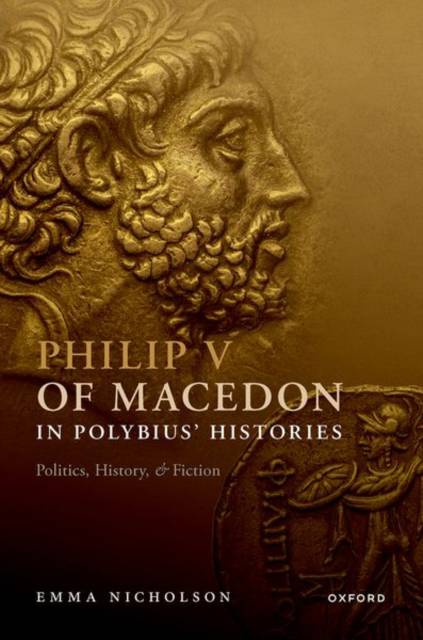
- Retrait gratuit dans votre magasin Club
- 7.000.000 titres dans notre catalogue
- Payer en toute sécurité
- Toujours un magasin près de chez vous
- Retrait gratuit dans votre magasin Club
- 7.000.0000 titres dans notre catalogue
- Payer en toute sécurité
- Toujours un magasin près de chez vous
Philip V of Macedon in Polybius' Histories
Politics, History, and Fiction
Emma Nicholson
Livre relié | Anglais
225,95 €
+ 451 points
Description
Philip V of Macedon in Polybius' Histories: Politics, History, and Fiction offers a historiographical and literary study of Polybius' portrait of Philip V and aims to advance our knowledge of both the Macedonian king and the historian. It takes a chronological and thematic approach, exploring how Polybius' political, historiographical, and didactic aims impact the king's depiction from beginning to end. The first half focuses on political and rhetorical aspects: it highlights the embedded Achaean perspective of the narrative and how this fundamentally shapes Philip's image; it re-evaluates key character-defining episodes, such as the sack of Thermum and the attempt on Messene; and it problematizes Polybius' claim that Philip became increasingly treacherous and tyrannical towards the Greeks after 215 BC. The second half explores how Polybius develops his interpretation of the king through ideological and literary means: it investigates how Polybius uses cultural politics to blacken Philip's image and justify the exchange of Macedon and Rome as hegemonic powers in the Greek world; it rationalizes his use of a tragic mode for Philip's last years, examining the implications this styling has for our historical understanding of the king; and it considers how tensions between Polybius' narrative and commentary on Philip may be the result of his combination of historiographical and biographical modes of presentation. It finishes by resituating Philip in the broader context of the Histories, drawing comparisons between his portrait and that of other kings and leaders, and discussing how kings are shaped by and contribute to the arguments in the Histories.
Spécifications
Parties prenantes
- Auteur(s) :
- Editeur:
Contenu
- Nombre de pages :
- 416
- Langue:
- Anglais
Caractéristiques
- EAN:
- 9780192866769
- Date de parution :
- 16-05-23
- Format:
- Livre relié
- Format numérique:
- Genaaid
- Dimensions :
- 168 mm x 224 mm
- Poids :
- 793 g

Les avis
Nous publions uniquement les avis qui respectent les conditions requises. Consultez nos conditions pour les avis.






